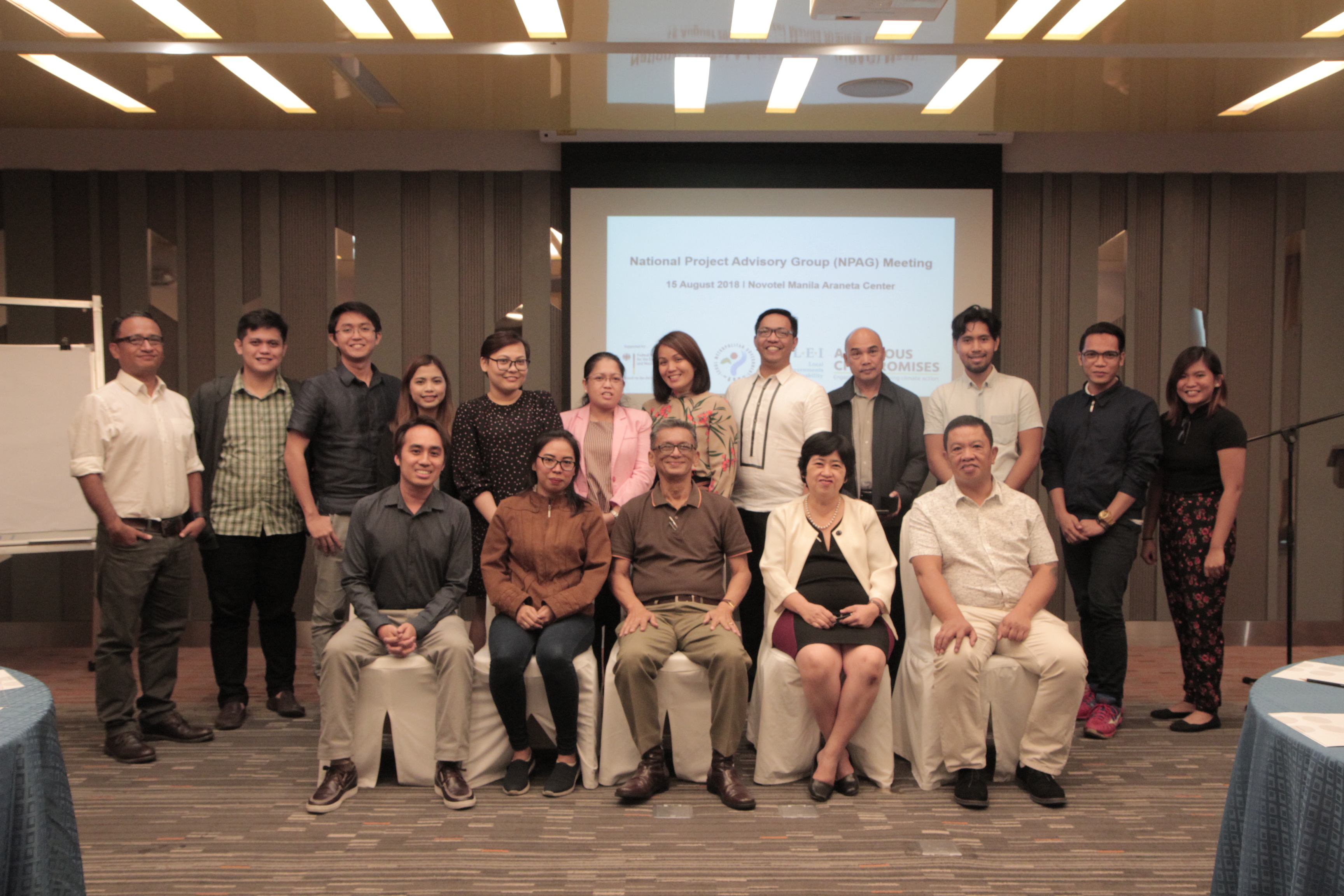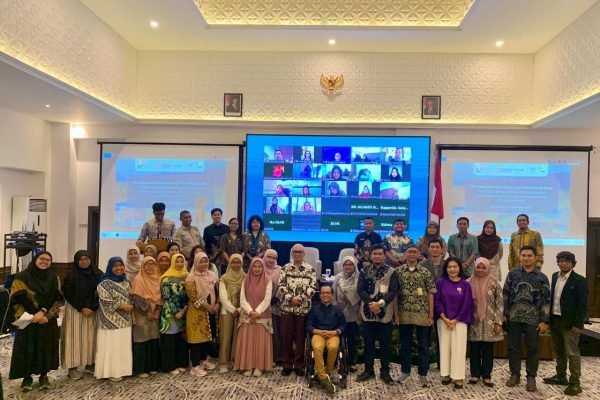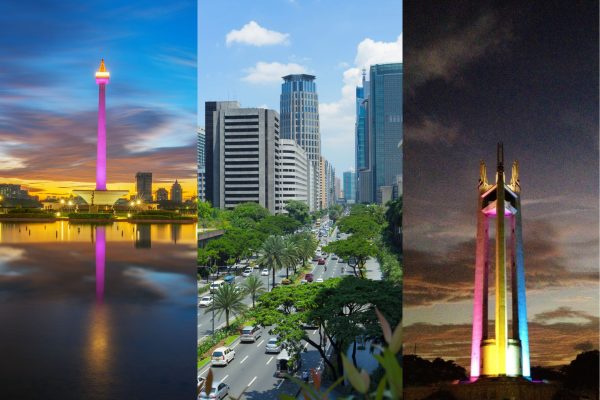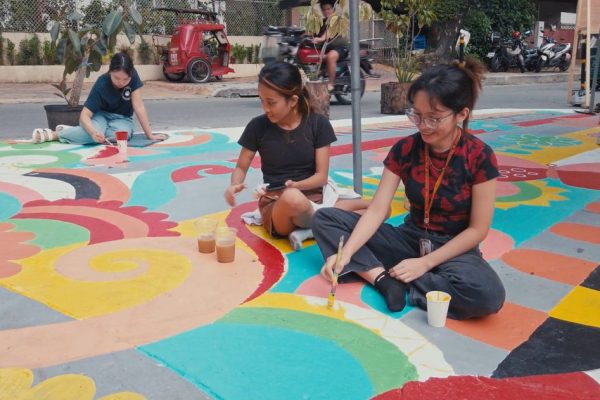Representatives from the Department of Environment and Natural Resources (DENR), Climate Change Commission (CCC), Department of Energy (DOE), Department of Transportation (DOTr), League of Cities of the Philippines (LCP), UN Habitat, Pasig City, Parañaque City, ICLEI World Secretariat, and ICLEI Southeast Asia Secretariat discussed and validated the NPAG’s key functions in ACP’s project implementation.
Quezon City, Philippines – The National Project Advisory Group (NPAG) of the Ambitious City Promises (ACP) Project convened for its first joint meeting last 15 August 2018 to define and validate their key functions in the overall project implementation. The meeting also further defined concrete areas of collaboration between the participating cities and respective agencies.
Chaired by Director Elenida Basug of the Department of Environment and Natural Resources – Climate Change Service (DENR-CCS), the NPAG was formed to provide country-specific guidance and support as the cities formulate their local climate change action plans (LCCAP).
It is envisioned that the NPAG will strengthen integration of low emission development strategies (LEDS) at the local level, enhance vertical integration of LEDS through provision of technical and policy advice on the alignment of plans and projects pursued by the project cities with the Philippine government’s national priorities, and create synergies and broaden project outreach.
The NPAG is comprised of various national government agencies and development partners deemed relevant in terms of local climate action planning. ICLEI Southeast Asia secretariat, as project implementer, including participating project cities of Pasig, Marikina, and Parañaque serves as ex-officio members.
National government agencies in attendance were Climate Change Commission (CCC) who serves as NPAG co-chair; sectoral agencies including Department of Energy – Energy Efficiency and Conservation Division (DOE-EECD) and Department of Transportation – Road Transport and Infrastructure (DOTr); as well as development partners from the League of Cities of the Philippines (LCP) and UN Habitat. Ms. Jiwon Lee and Mr. Cesar Carreño represented the ICLEI World Secretariat to the meeting. The Department of the Interior and Local Government – Bureau of Local Government Development (DILG-BLGD) is also part of the NPAG but was unable to participate.
Mr. Arnold Belver of CCC shared key updates on the country’s National Climate Change Action Plan (NCCAP) and Nationally Determined Contribution (NDC) as part of our commitment to the Paris Agreement. He explained that the Philippines has previously expressed its intention to reduce greenhouse gas emissions up to 70% by 2030 relative to its business-as-usual (BAU) scenario of 2000-2030, fully conditional on the external support including financing as well as knowledge and technology transfer. He then elaborated that this target is being revisited and the Philippine government is set to define its NDC by 2019.
On the other hand, Ms. Rea Uy-Epistola, Coordinator of the Vertical Integration and Learning for Low Emission Development (V-LED) project of UN-Habitat, shared the V-LED project’s contribution in enhancing the LCCAP guidelines by strengthening the integration of mitigation as a climate change strategy.
Recognizing the importance of partnerships and collaboration, this national-local dialogue also identified potential areas of support that the NPAG members can extend to project cities. Specific areas of support were based on the capacity needs assessment conducted by ICLEI for the three project cities earlier this year.
Engr. Artemio Habitan, OIC Chief of DOE-EECD shared the national Energy Efficiency and Conservation (EE&C) Roadmap and emphasized the crucial role of cities in implementing this roadmap. He also mentioned capacity building opportunities offered by the DOE on crafting policy and technical solutions to advance EE&C at the local level. DOTr, represented by Intelligent Transport System Engineer, Engr. Titus Ragragio, provided a comprehensive overview of the public utility vehicle (PUV) modernization program as a major driver of the low carbon agenda in the transport sector. Ms. Veronica Hitosis, Deputy Executive Director for Policy, Programs, and Projects of LCP shared that LCP can help effectively communicate and translate relevant policies as well as lessons learned by the project to other cities.
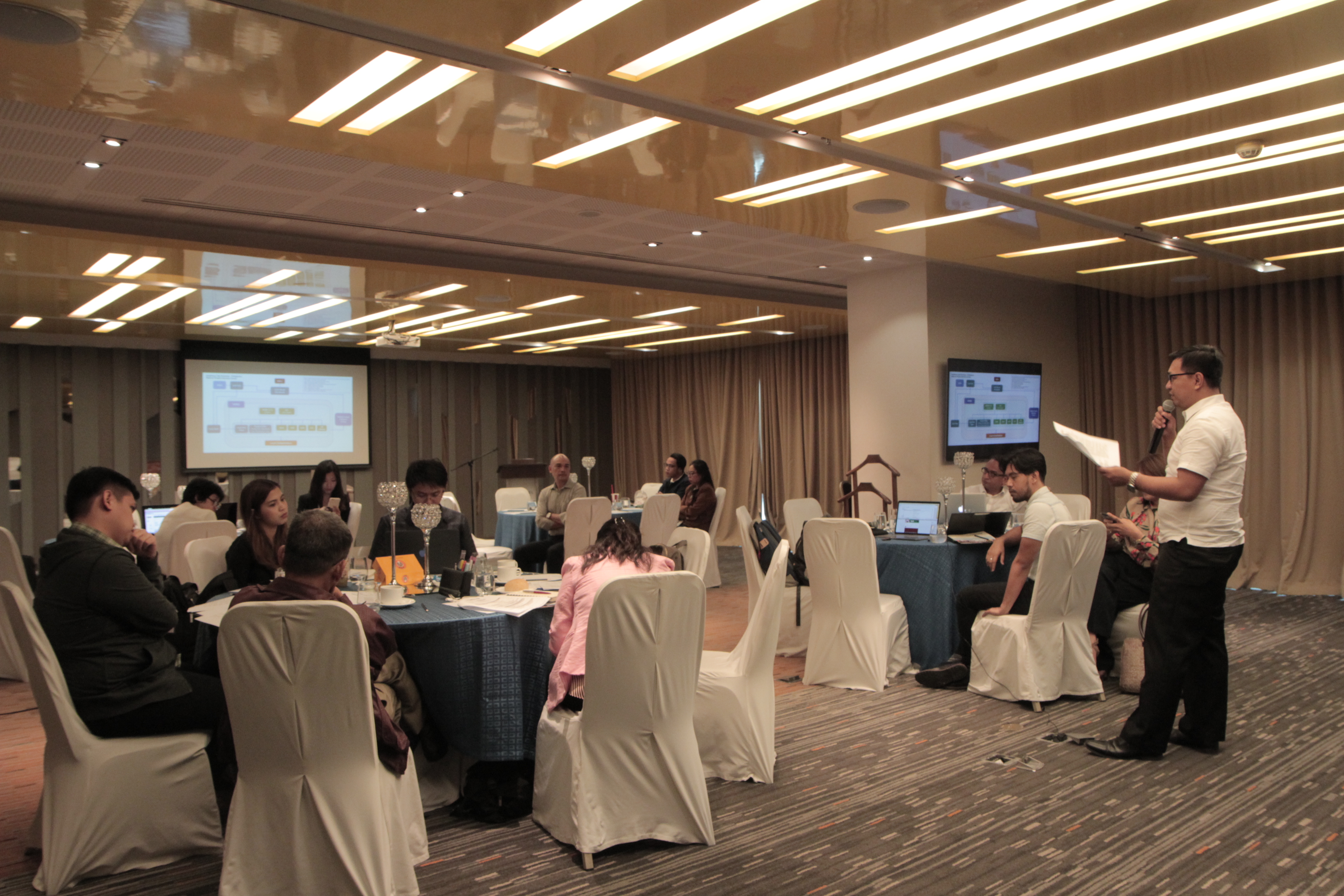
NPAG members discussed challenges and solutions in the conduct of community-level GHG inventories during the meeting.
In terms of conducting GHG emissions inventory, participating cities of Pasig and Parañaque expressed difficulties encountered in gathering relevant data due to limitations in resources and technical capacity. CCC and LCP addressed some of these challenges by clarifying technical data requirements in completing an inventory. Moreover, CCC shared that it offers training activities in the conduct of inventory including the use of the CCC’s Community-Level GHG Quantification Support Spreadsheet. Mr. Cesar Carreño, ICLEI World Secretariat’s in-house expert on GHG emissions inventory also shared alternative methodologies to generate quality data as defined in the Global Protocol for Community-Scale GHG Emission Inventories (GPC).
The Ambitious City Promises (ACP) is a 3.5-year international project which aims to support selected large cities in Indonesia, the Philippines, and Vietnam to establish strong GHG reduction commitments, local climate action plans directed by concrete targets, enhanced multi-stakeholder engagement, and integrated strategies. The project is implemented by ICLEI in close cooperation with Seoul Metropolitan Government (SMG), and is funded by the German Federal Ministry for the Environment, Nature Conservation, and Nuclear Safety (BMU) through the International Climate Initiative (IKI). In the Philippines, the NPAG meeting is convened by ICLEI Southeast Asia’s Regional Director annually to report on project progress and further streamline means of cooperation with the group.

